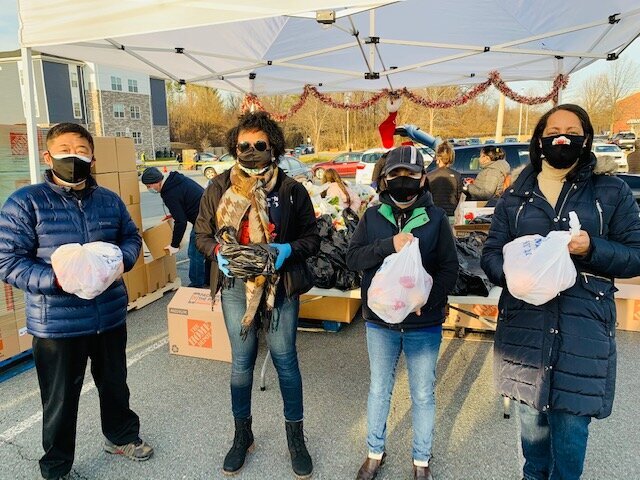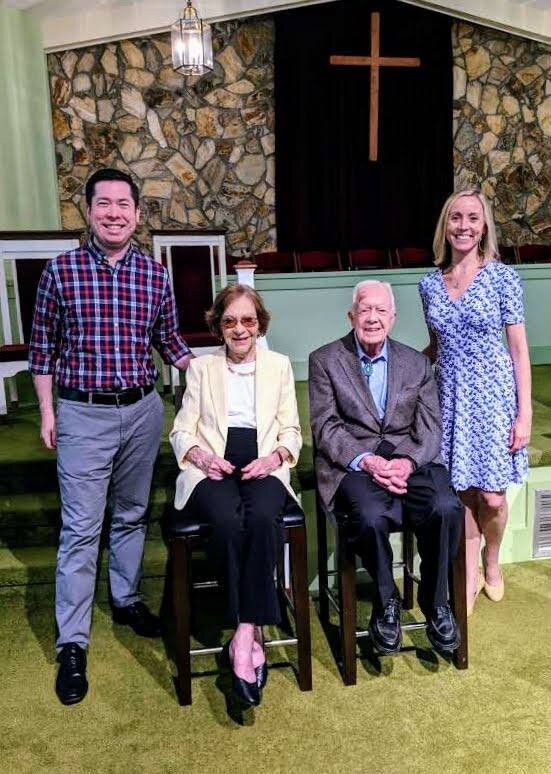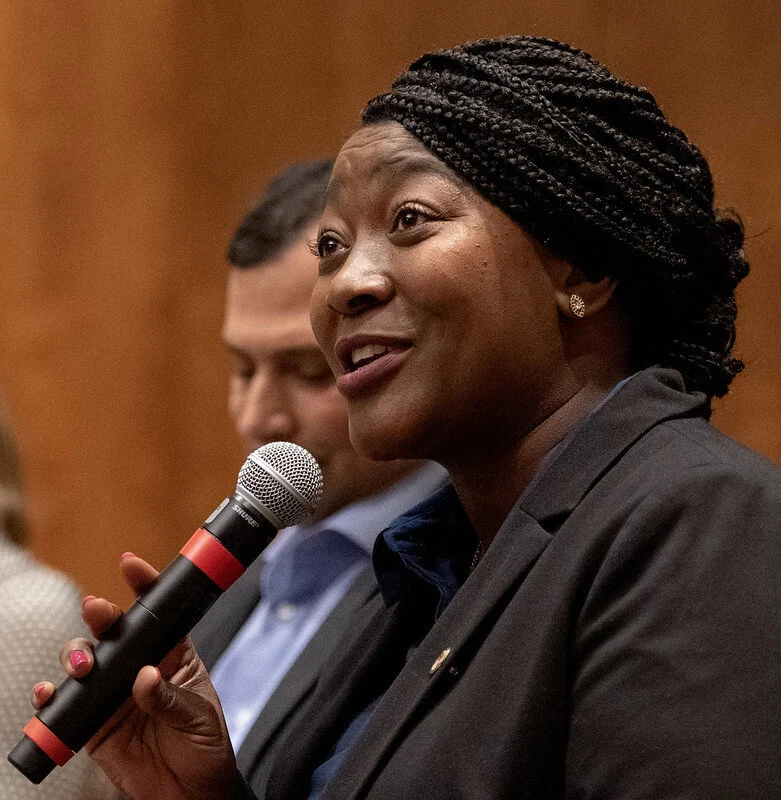By Jennifer Olney, Community Investment Officer, Partnership to End Homelessness
Over the past year, the COVID-19 pandemic has highlighted the long-standing housing crisis and inequities in our country, and even right here in DC. Thousands of tenants in the city are behind on rent and at imminent risk of eviction. Currently, both DC and the federal government have eviction moratoriums in place to protect tenants while they apply for available resources and supports. Unfortunately, those protections are already starting to phase out and evictions in DC are set to resume in October.
The Community Foundation has a long history of supporting housing justice and working to end homelessness in DC. Addressing inequities and supporting our community is at the center of our mission and housing justice is a key component of our work through the Partnership to End Homelessness.
In 2020, the COVID-19 crisis led us to take swift action to address the growing concern for tenants falling behind on rent and at risk of losing their housing in the middle of a global health pandemic.
Even with federal and local eviction moratoriums in place, tenants faced mounting back rent and the severity of the situation continued to threaten the lives and livelihoods of our neighbors. In DC, tens of thousands of households fell behind on rent and we knew that many would be at risk of homelessness if they were evicted.
In order to prevent a large wave of evictions and increases in homelessness, we convened a group of key partners, including the DC Bar Foundation, for weekly discussions to identify strategic opportunities for private sector investments amid a rapidly changing environment. This group met regularly with our government partners and other nonprofit partners working on the ground to coordinate our learning and response strategies.
From the beginning, our work has focused on creating more equitable outcomes for our Black and Latinx neighbors disproportionately impacted by COVID-19, the economic crisis, and the ongoing housing crisis in the city. Even before the pandemic, 87% of extremely low-income, severely rent-burdened households in DC were headed by a person of color. According to a 2021 report by the Urban Institute, the risk of evictions is greater for Black, Indigenous, and Latinx residents. Almost one in two Hispanic/Latinx renters and more than one in four Black renters were worried about paying next month’s rent.
Through our conversations with partners and by examining new research and data, we identified two key areas for private sector investment that would lead to more equitable access to rental assistance resources.
Support outreach to target communities most at risk of eviction. Using the Urban Institute Emergency Rental Assistance Prioritization Tool we identified areas of the city that had high risk of housing instability; high impact from COVID-19; and a high share of Black, Indigenous, and Latinx renters, extremely low-income renter households, households receiving public assistance, and people born outside of the US.
Support trusted partners to answer questions and provide support. Many tenants have questions and need assistance to complete the rental assistance application for government resources. Our partners on the ground are critical to the effort to support tenants and share essential information about emergency rental assistance, legal services, and other available resources.
In response, we invested in Housing Counseling Services (HCS) to help tenants apply for rental assistance by meeting them where they live, learn, pray, and play. At these key locations, HCS is providing outreach and assistance to households behind on rent and most at risk of eviction and homelessness. HCS is also providing support in court to help tenants who face evictions apply for assistance.
We know that our resources are limited and that in order to address the eviction crisis and prevent homelessness, we need everyone working together to create long-term solutions. In June 2021, we were invited to participate in a White House Eviction Prevention Summit as the philanthropic representative from DC. At that summit, we heard Matthew Desmond talk about the devastating impact of evictions and successful diversion efforts across the country. We also heard from leaders in the federal government who were committed to working with communities to help prevent evictions. After meeting with the DC delegation and discussing local opportunities, we agreed to continue convening the group along with our partners at the DC Bar Foundation.
Since the White House Summit, the members of the DC delegation have been meeting weekly to discuss challenges and identify opportunities. This group is comprised of over 65 representatives from nonprofits, tenant advocates, local government agencies, the courts, landlords/housing providers, and philanthropy. Our immediate goal is to prevent evictions by increasing rental assistance to target at risk households and to strengthen legal supports, services, and mediation with the court system.
We have an unprecedented opportunity to support a more equitable recovery and to increase housing stability given the availability of federal resources and this strong partnership with federal government. We have the right people around the table and know that in addition to preventing the immediate eviction crisis, we also have an opportunity to create systems and policies that are more equitable and that ultimately lead to greater housing stability in DC.
If you are interested in this work, please contact Jennifer Olney at [email protected] or Silvana Straw at [email protected].























